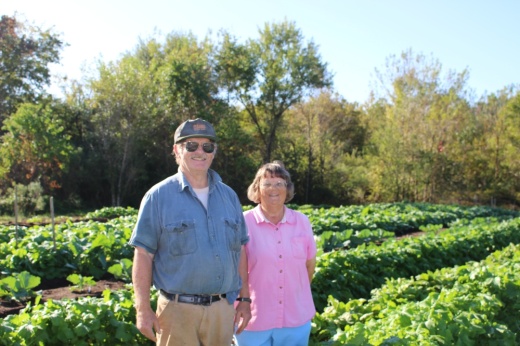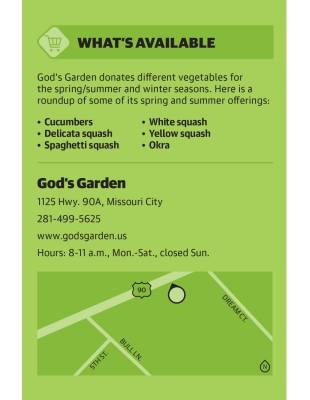God’s Garden, a Christ-centered community garden in Missouri City, may have begun in 2016 when it earned its nonprofit status, but co-founders Michael and Lorraine Streeb have been community gardening long before then.
The Streebs first grew a 10,000-square-foot community garden at All Saints Lutheran Church in Meadows Place starting in 2000, and it was designed around meeting a basic need: A lot of people could not afford to buy fresh vegetables, Lorraine said. At the church, the couple grew a variety of vegetables, including sorrel, Vietnamese melons, Indian cucumbers, rosemary and buffalo gourds.
“Our mission is to basically grow vegetables free of charge and give them to the food pantries,” Lorraine said. “We do this so that it can help with the food insecurity in the area.”
Eventually, the couple searched for property for a new garden after their church closed in 2019, Lorraine said.
The couple started a new garden at 1125 Hwy. 90A, Missouri City, in June 2019 on 6.5 acres of land that is being provided free of charge by the property owner, Michael said.
The nonprofit needed to clear out trees and scrub brush to make room for a garden, but it managed to do so in time for the winter growing season.
“We started with one row,” Lorraine said. “We were able to plant that winter and grow some vegetables to get to the food pantries.”
With Michael’s and Lorraine’s farming experience working the land since their youth, the nonprofit has significantly grown its annual yield of fresh vegetables donated to its partners, including Second Mile Ministry, East Fort Bend Human Needs Ministry, Richmond-Rosenberg Helping Hands and Mamie George Community Center’s Trini’s Corner Market.
God’s Garden gave 5,440 pounds of vegetables to local food pantries in 2017—an average of about 1,088 meals. By 2021, when the garden expanded to more than 15,400 square feet, the nonprofit had donated 17,447 pounds of fresh vegetables, Lorraine said.
Vegetables including butternut squash, spaghetti squash, delicata squash, cucumbers and some okra are some of the spring and summer donated vegetables that go to partners.
“That growth really says that there is a lot of food insecurity in the Greater Fort Bend area,” Lorraine said. “I’ve seen people get food from the different food pantries, a lot of packaged foods, but they don’t always get fresh.”
Claire Shoop contributed to this report.







